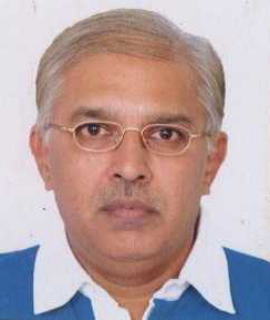ICAM 2023 _ Event Postponement
This is to inform that due to some circumstances beyond the organizer control, “2nd Edition of International Conference and Expo on Applied Microbiology” (ICAM 2023) Hybrid Event scheduled during June 23-24, 2023 | Rome, Italy has been postponed. The updated dates and venue will be displayed shortly.
Your registration can be transferred to the next edition, if you have already confirmed your participation at the event.
For further details, please contact us at applied-microbiology@magnusconference.com or call +1 (702) 988 2320.
Gut Microbiota and Intestine
There are trillions of microorganisms (bacteria) in the human body. Some of these are beneficial, while others are harmful. The biomass produced by the bacteria living in the gastrointestinal tract is around 4 pounds. Every person is made up of a unique mix of species. Nutrition, immunity, and effects on the brain and behaviour are all influenced by the microbiome. It's linked to a number of disorders that create a disruption in the microbiome's usual balance. The gut microbiota (the community of microorganisms that live in the gastrointestinal system) has a wide range of physiological consequences. It aids in the creation of biologically active molecules, as well as the modulation of immunological responses, behaviour, and mood. The gut microbiota was previously known as the gut microflora. Humans benefit from this symbiotic relationship, and the presence of this normal flora includes microorganisms that are so common in the environment that they may be found in almost all animals from the same area. These local microbes, on the other hand, include hazardous bacteria that may overcome the body's defences that keep them from important organs and systems.
- Gastrointestinal Disease: Mechanisms, Host Defense, Diagnosis, Epidemiology
- Host-Pathogen Interactions
- Immune System
- Metagenomics
- Microbial Diversity
- Microbial Ecology
- Microbiome
- Next Generation Sequencing
- Novel Treatments and Clinical Trials
- Probiotics and Prebiotics
- Profiling the Intestinal Microbiota
- Quorum Sensing and Toxicity
- Role of Intestinal Microbiota in Health and Disease

Xingmin Sun
University of South Florida, United States
Bing Chen
Memorial University, Canada
Shailesh R Dave
Xavier’s Research Foundation, LCRD, India
Michaela Hostetler
The Ohio State University, United States


Title : Degradation of chitin using chitinase produced from molecular identified bacteria
Afra Mohammed Baghdadi, Jeddah University, Saudi Arabia
Title : Antibiotic resistance of clostridioides difficile
Xingmin Sun, University of South Florida, United States
Title : Metagenomics of the saline habitats of coastal Gujarat, India: Emerging potential for biocatalysis and bioremediation
P. Satya Singh, Saurashtra University, India
Title : Molecular Response Analysis for Lentinus squarrosulus AF5 under Azo dyes Stress: An Integrated Proteome Dynamics and Putative Metabolic Cascade
Anshu Mathur, Indian Institute of Technology Roorkee, India
Title : The necessity for innovative biotechnological solutions for the treatment of dying and textile effluents and their prose and cones
Shailesh R Dave, Xavier’s Research Foundation, LCRD, India
Title : In search of obesity-linked signature gut microbial features and species contributors of reproducible pathway shifts
Deep Chanda, National Institute of Technology, India